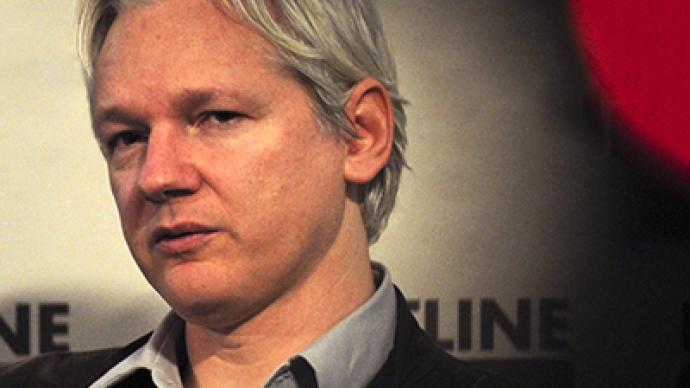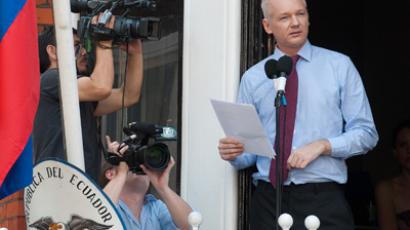Assange’s health could drastically worsen in embassy – lawyer

WikiLeaks founder Julian Assange could suffer serious health problems if he stays in London’s Ecuadorian embassy, warned his lawyer. The whistleblower faces immediate arrest and extradition to Sweden should he leave the building.
“Assange is in good health, but the situation is getting steadily worse,” lawyer Baltasar Garzon said during an anti-corruption conference in Rio de Janeiro, Brazil. The confined conditions in which Assange is currently living could cause him to “suffer from serious medical problems,” and lead to “psychological issues,” Garzon said.
Assange has been confined tinside Ecuadorian Embassy since June 19 in conditions Garzon described as worse than prison. Assange took refuge there to avoid being extradited to Sweden, where he is wanted for questioning on charges of sex crimes.
According to Garzon, Assange is not seeking to escape questioning in Sweden, as they allegedly have evidence proving his innocence. “We want the trial to go ahead in Sweden, but we want a guarantee of his safety.” Garzon said the whistleblower risked being re-extradited to US jurisdiction should he be taken to Sweden.
Previously, Ecuadorian vice foreign minister Marco Albuja said that he was “very worried” for Assange’s welfare, and that “he had lost a lot of weight.”
The Ecuadorian government has asked the UK for permission to extract Assange from the embassy in London and transfer him to Ecuador. They also called for a guarantee of his safety if he has to be admitted to a London hospital at any time.
The British government has flatly refused to negotiate, maintaining that they are legally obligated to hand him over to Sweden should he set foot outside the embassy.
The WikiLeaks founder has now spent over four months in the embassy after losing his court battle against extradition. He claims the allegations of sexual abuse against him are politically motivated, and part of a US conspiracy to arrest him.
Assange drew Washington's fury after publishing thousands of classified diplomatic cables on the whistleblowing website WikiLeaks in 2010.
The US government has denied claims that there is a secret grand jury case being prepared to prosecute Assange, but has not ruled out the possibility of requesting he be extradited from Sweden to the US.
Despite Washington’s denials, there is evidence that the US government has been monitoring Assange for the last few years. Diplomatic cables released a month ago showed how US and Australian authorities shared information on the whistleblower. One of the wires indicated the most successful route to prosecution “would be to show that Mr. Assange had acted as a co-conspirator – soliciting, encouraging or assisting [US Army private] Bradley Manning, to obtain and provide the documents.”
Bradley Manning, 24, faces a potential life sentence if he is convicted of aiding the enemy after releasing classified military intelligence to WikiLeaks in 2010. Manning’s lawyer said last week that he may plead guilty to some of the lesser charges set against him.














